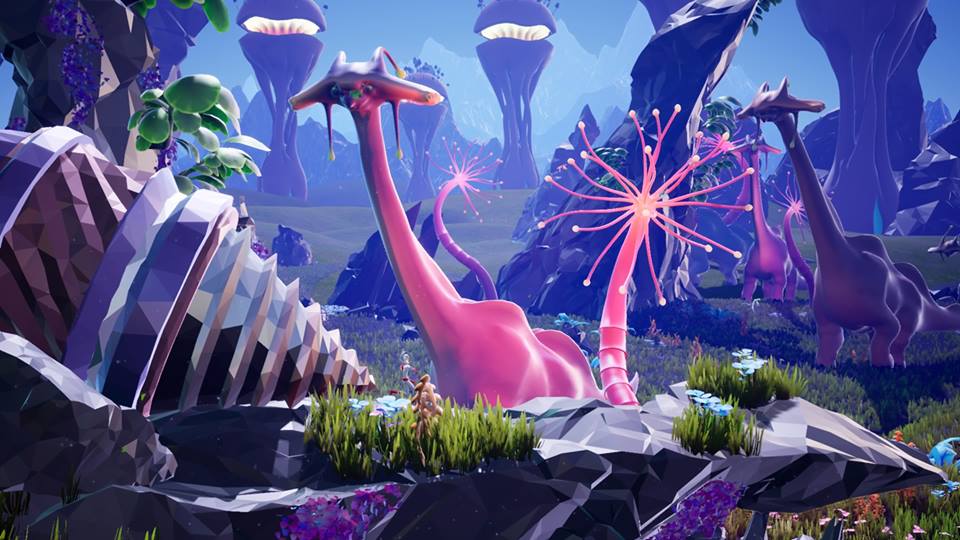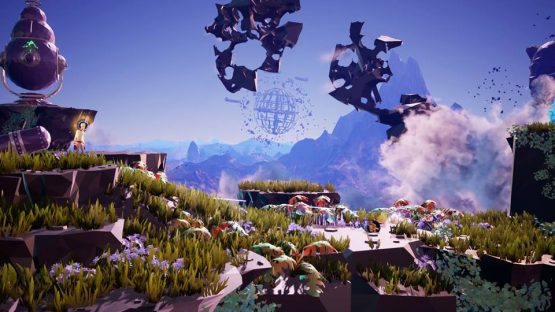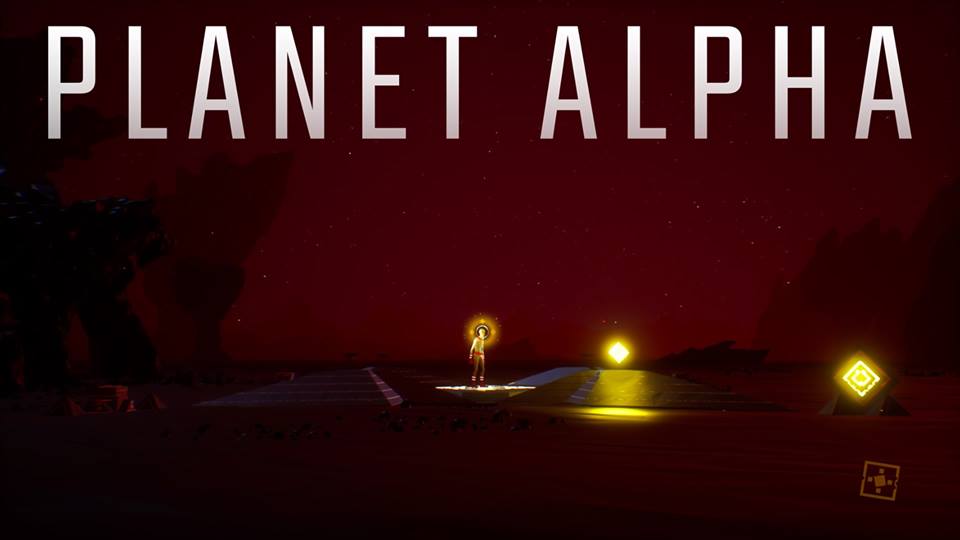
The alpha, beta, and omega of games about—you guessed it—planets.
Planet Alpha is, without a shadow of a doubt, one of the most pure and sincere games I have played in quite some time. How? Because it doesn’t waste time trying to be anything it isn’t. Set on an unnamed planet, somewhere amidst the cosmos, the game is one that is deeply rooted in ideas of ambiguity. A war rages between the planet’s indigenous fauna and an army of machines, and the player doesn’t seem to have any part in it. They seem to be all alone in a world without humanity, and the reason they’re there in the first place is shrouded in mystery. All you know is that you’ve got to platform your way to safety.
What is Planet Alpha?
Planet Alpha, for those who don’t know, is a 2D-inspired platformer developed by Team 17. It’s a puzzle game, and it places particular emphasis on environmental manipulation. There is no combat in the game. The player relies on either stealth, or puzzles when they encounter an enemy. It’s quite refreshing to play a game that doesn’t feel the need to feature mindless violence to at least some degree. Also, it helps that the player never actually intends to destroy the robots, and can’t harm any of the planet’s fauna. Planet Alpha is about escape, not colonization. It’s not concerned with displaying “237 enemies killed” at the end-game. It’s gentle, quiet, and warm. As the inimitable Percy Bysshe Shelley wrote in “A Defence of Poetry,” the game “makes familiar objects be as if they were not familiar,” by offering enchanting imagery in slow and vivid color.
In fact, Planet Alpha‘s breathtaking vistas put a lot of AAA games to shame. Granted, it is a side-scroller, and the environmental design doesn’t necessitate much interactivity, or dynamic adjustment. However, it’s the color and textures more so than anything else that make the overall aesthetic so spectacular. The aesthetics are supplemented by the game’s perfectly fitting score, which adapts to the environment, and the degree of safety a player can expect in certain areas is directly linked to the score’s harshness and tempo. The environmental design itself changes so frequently that the player always feels a sense of accomplishment from progressing to a new area. Its such a dynamic design that there’s always a feeling of discovery, mystery, and hope, even throughout the darker areas. I really don’t think that there’s a plausible argument for suggesting that the game isn’t beautiful. It just is.
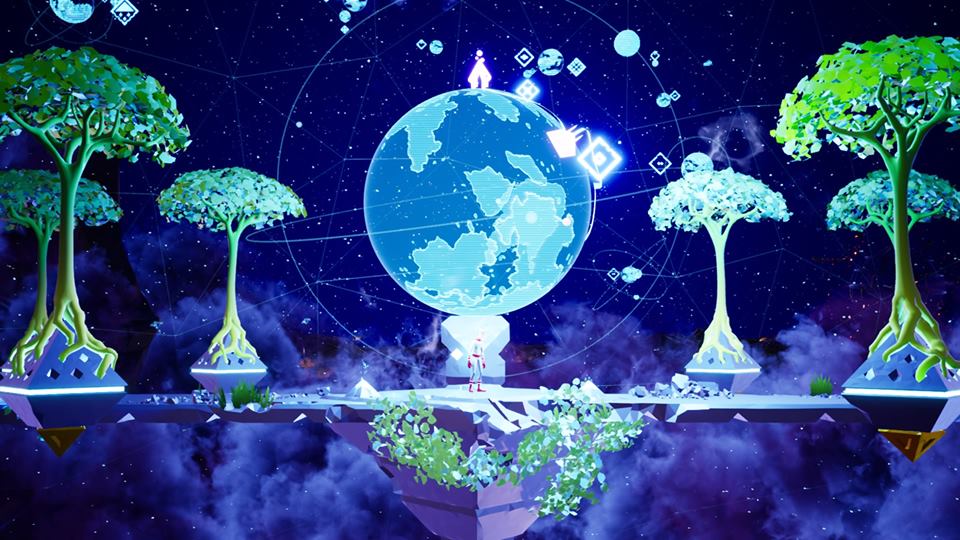
A Fresh Look At Puzzle Games
Planet Alpha is the first puzzle game I’ve seen in quite some time that genuinely strives to be innovative in relation to the design of its puzzles. It’s probably the puzzle game I’ve enjoyed most since I played since The Witness, despite how different the two are to each other. As opposed to the unfortunately common tropes of remedial dashes set to gratuitous timers, or a “hit this button with your big gun,” Planet Alpha left me stuck on several occasions, and I really appreciated that—after I figured out the puzzles, that is. I may have, on one occasion or another, cursed the game for having no right answer.
When I figured it out, though, it was worth the frustration I had felt. Always is. At one point, I stopped playing for a while after being stuck in an area for 20 minutes or so and, after coming back with a fresh head, cracked the puzzle almost immediately. The feeling of gratification was immense, as I felt I’d genuinely earned the right to progress further. The puzzles aren’t impossible, but they do require some thinking outside of the box. There were several times throughout Planet Alpha‘s campaign that I was genuinely impressed with the solution to a puzzle. That’s something I haven’t experienced in quite some time. “Wow, that’s really clever environmental design.” Did I just say that? Yeah, and it felt good.
A Bit Of Personality, For Once
This is a game that never tries to be anything it isn’t. Its sense of self is so pure and consistent that there really isn’t a low point in the game. It’s just a gorgeous, enigmatic journey, and its mystique is one of graceful subtlety. It’s not annoyingly ambiguous. It’s just sort of experiential in a peripheral kind of way. You’re going somewhere, and it doesn’t really matter if you don’t know where that is. The game doesn’t attempt to present a clear narrative, and there is zero dialogue. It’s all about the gameplay experience, and the game is emphatically experiential. It’s just so quietly charming.
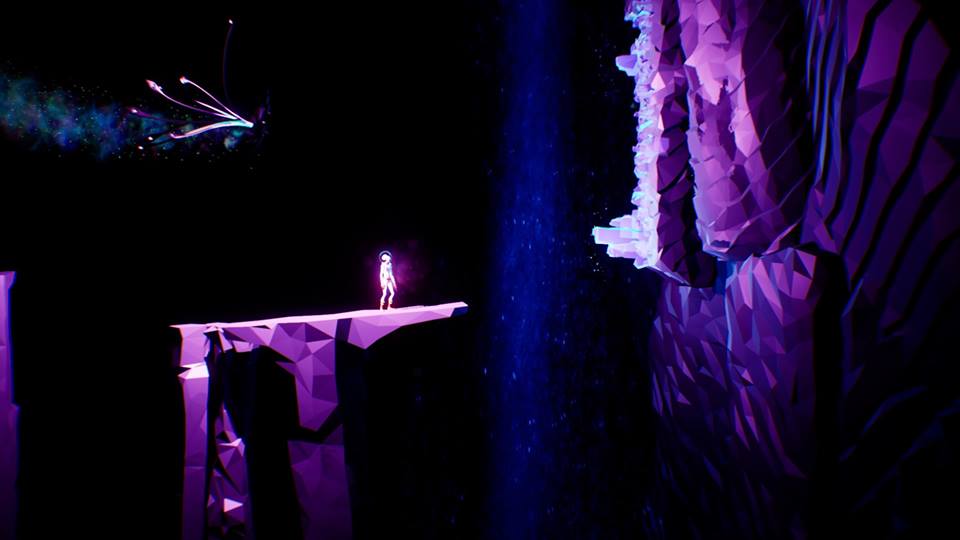
Although there isn’t any direct form of combat, the game does feature boss fights. These usually involve the player having to simultaneously overcome environmental obstacles, while avoiding an insta-kill lock-on laser that the boss shoots from his eyes, or something. They’re really fast-paced, and by no stretch of the imagination are they easy. Also, the fights are all radically different to each other, which makes them far more interesting overall. Each fight seems to carry a certain degree of significance, too, as they’re usually placed before the game presents a difficulty spike. You fight the boss, escape, the music becomes soft and tranquil, and you’re running beneath the legs of docile dinos before you know it. Then, the game becomes harder than it was before. That’s okay. You fought the boss, you took a breather, and now you’re back into the fray, ready for the next wave of innovative puzzles. It almost feels like a treat when you encounter the next layer of puzzle design, as it prevents the game from stagnating. Despite the simplicity of the game’s narrative design, it truly never stagnates.
There’s no bullshit in Planet Alpha, to put it plainly. It knows exactly what it wants to do, and it does it. There’s no filler, no cheap puzzle solutions, no game-breaking glitches, no gratuitous lean towards overused narrative crutches. It’s just a platformer, but one that emanates a graceful radiance of character and color. It’s a game that lovers of puzzle games and platformers alike need to play. As I mentioned above, I’ve not been this impressed with a game within these genres since The Witness, and prior to that, I think of Blow’s other game, Braid. For me, those two games are the pinnacle of puzzle games, but Planet Alpha announces what it wants to do, and does it, so it’s difficult for me to fault it. Slip away into the world of Planet Alpha for a while, filled with puzzles and color. It’s a real charmer.
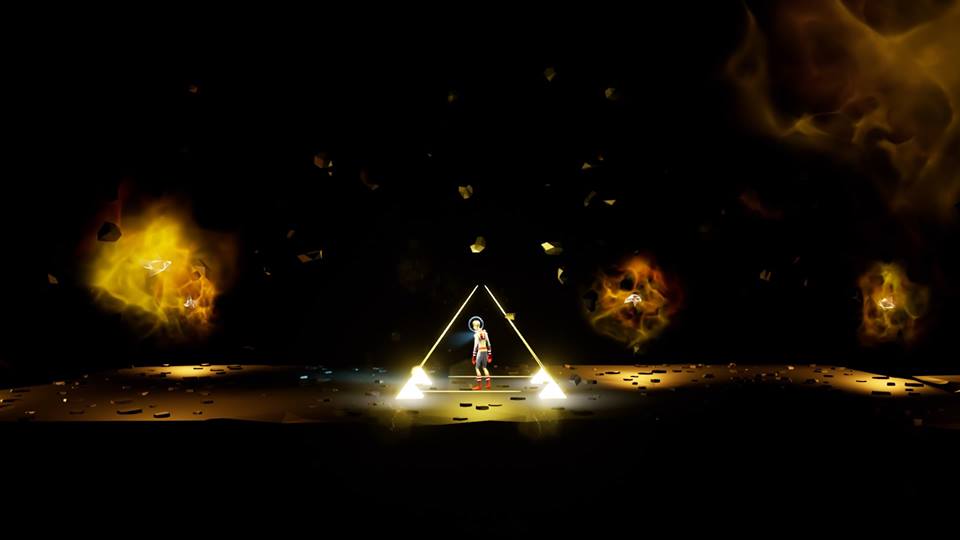
Planet Alpha review code provided by Team 17. Version 1.01, reviewed on a PS4. For more information on scoring please see our Review Policy here.
-
Fantastic environmental design.
-
Seamless chapter transitions.
-
Innovative puzzle design.
-
Intuitive mechanics.
-
A little short, perhaps, but the price tag is in line with this, so this is minor.
-
Lack of context, which may steer some players away.
Planet Alpha Screenshot Gallery
This is a screenshot gallery displaying the incredible aesthetics of Planet Alpha
-
Planet Alpha
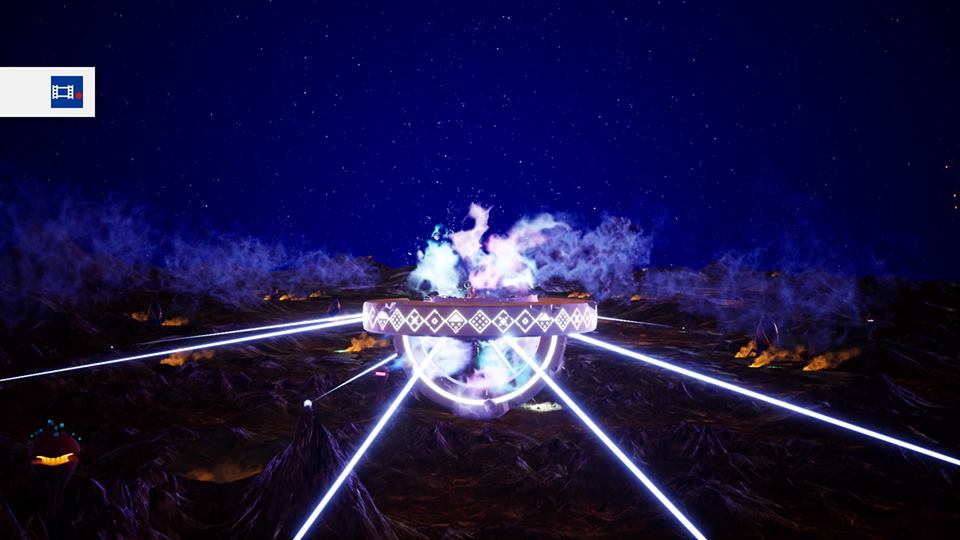
-
Planet Alpha
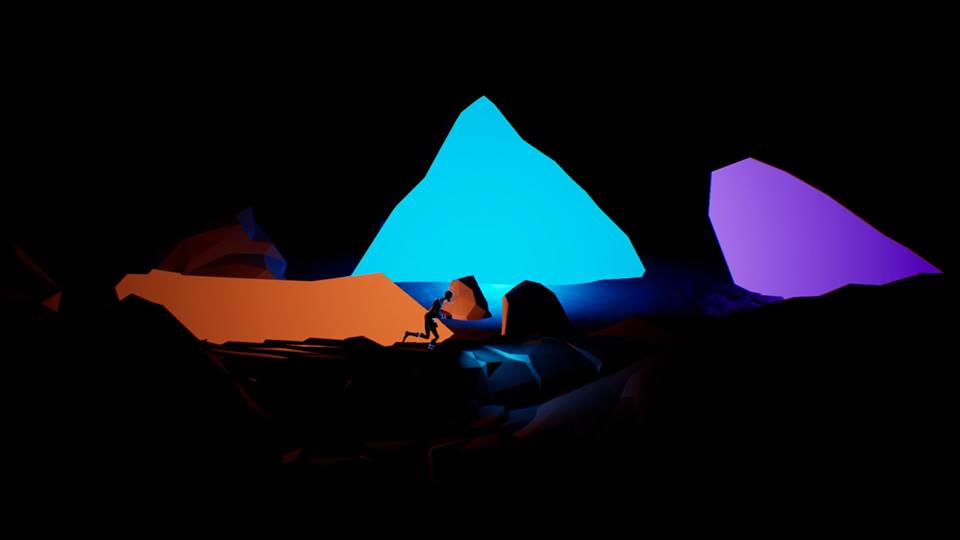
-
Planet Alpha

-
Planet Alpha

-
Planet Alpha

-
Planet Alpha

-
Planet Alpha
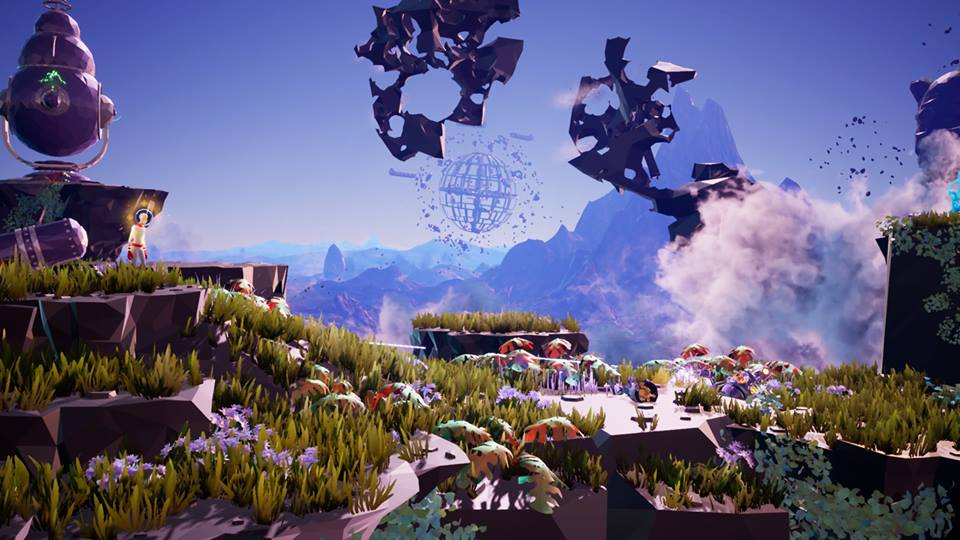
-
Planet Alpha
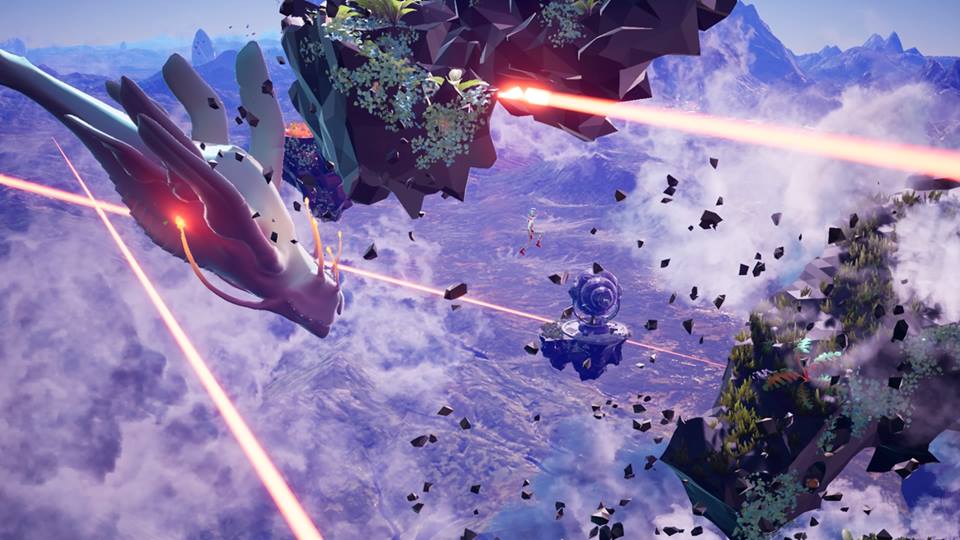
-
Planet Alpha
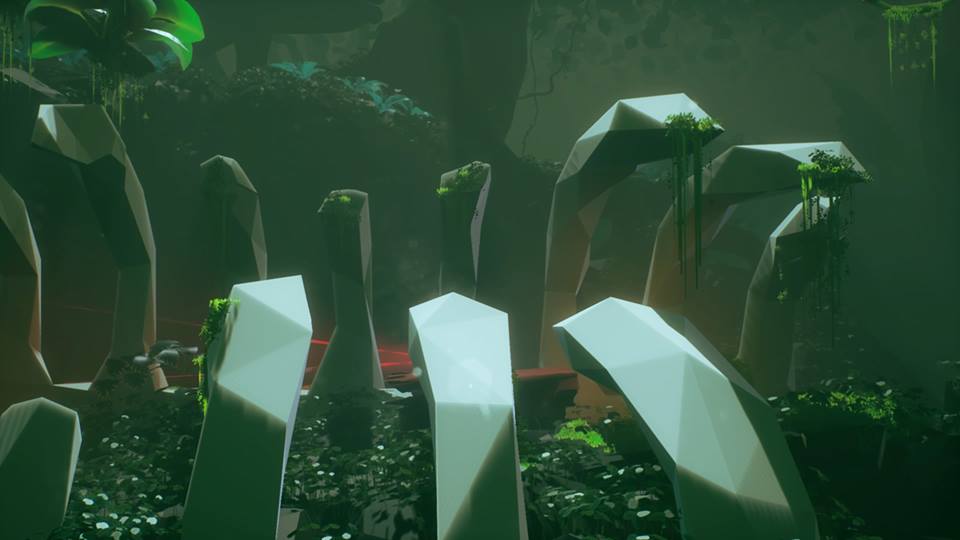
-
Planet Alpha
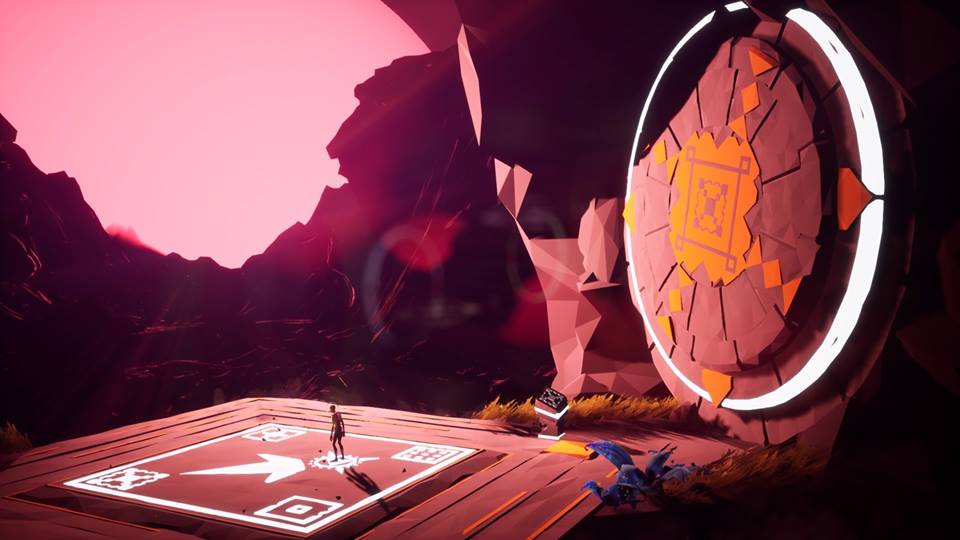
-
Planet Alpha
